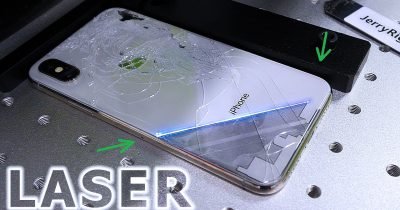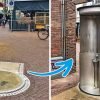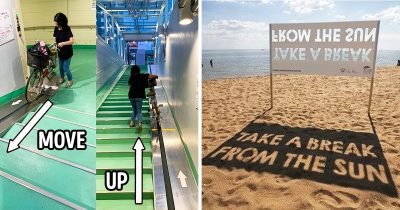creativity
Chicago Has a Trash-eating Robot Operated Through Crowdsourcing
You can be lazy and still keep the Chicago River clean. How’s that?
Trash is a universal problem and doesn’t matter where you live, it’s never delightful to see trash floating down the river or the sea. Urban River sees this issue and wants to change the situation. And they started like everyone else; they got down to the Chicago River and began picking up trash.
But there is only so much you can do in a day – the Chicago River is big and you can’t force people to pick up trash for the rest of their life. They need someone or something that is always ready to be there. The startup company began a project and posted it on a crowdfunding platform, Kickstarter.
Meet Trashbot, a small raft robot that picks up trash through remote control.

Urban Rivers is a startup that wishes to bring life and wilderness back to Chicago River. They first began the idea of a Trashbot from their floating gardens. Unfortunately, trash seems to flow endlessly and clog up their floating gardens, so they got up and started picking up litters.
But they don’t always get the chance to pick them up – the river doesn’t always sweep the trash at a constant speed. Sometimes they are there and no trash is seen. Sometimes they aren’t and suddenly a huge wave of plastic bottles and bags are swept away.
“We realized that we needed a solution that was ‘always on,’ that would allow us to remove trash in real-time as it flows past,” Nick Wesley concluded from the observation.
It was a challenge to the team because the project could envision what kind of mechanism to use. But the issue lies in whether the robot can recognize trash because we don’t have a definitive way to categorize trash. And so, instead of trying to automate it, they want to rely on the people again. There are good people out there and controlling the boat may not be too hard to do.
This seemingly live stream of the boat and getting people personally involved pique the interests of many. More than 180 backers gain access to control the boat whenever they are available to. Crowdsourcing began from Edmond Halley who relied on the power of the mass to take notes of eclipse observation to predict future eclipses.
It’s the same thing, but this time, Urban Rivers got people even more personally involved with simple, interactive activities.
“There are lots of different fields which can use this approach to solve some really big problems. As we start to increase the level of interaction, this is only going to get more exciting,” Nick said.
























